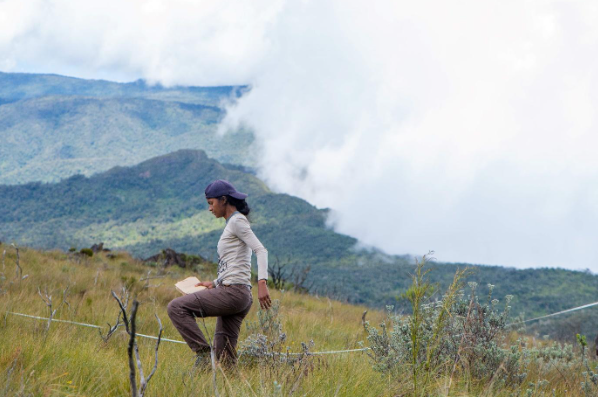EdTech
Madagascar scientist wins major research grant
Innovative research could provide a new perspective on conservation in Africa and around the world.
Malagasy bryologist, Dr Lovanomenjanahary Marline has been awarded a prestigious grant aimed at supporting early-career scientists in developing solutions to African challenges.
The $150,000 Jennifer Ward Oppenheimer Research Grant is managed by Oppenheimer Generations Research and Conservation and Oppenheimer Generations Philanthropies.
Marline intends to utilise it for her pioneering research project on bryophytes and lichen, small flowerless plants known for their sensitivity to environmental changes. They have largely been overlooked, especially in Africa.
Marline is attached to the Royal Botanic Gardens in Kew, London, and Association Vahatra in Antananarivo. Her study focuses on the role of bryophytes and lichen in monitoring three critical threats to humanity and the environment—air pollution, climate change, and the biological diversity crisis.
The JWO Research Grant enables Dr Marline to intensify her research efforts and collaborate with scientists and students from various African nations. The project’s three main objectives include building a comprehensive database of these unique plants in African biodiversity hotspots, predicting the impacts of air pollution and climate change on biodiversity, and mapping toxic particles and metal-containing air pollutants affecting human health.

Madagascar-based Scientist Awarded Prestigious Jennifer Ward Oppenheimer Research Grant for Ground-breaking Bryophyte Study
“We have strategically made conservation, specifically the preservation of ecosystems, an integral facet of our overarching mission,” says Jonathan Oppenheimer, executive chairman of Oppenheimer Generations, who established the grant in memory of his late wife. “In a global context, the prioritisation of conservation often lacks centrality in individuals’ lives. The stark reality is that without successful endeavours in safeguarding and preserving our biodiversity, our collective existence is facing extinction.
“It is critical to recognise that climate change is not an isolated phenomenon but rather a symptomatic manifestation of the overarching collapse of our ecological resilience”.
Marline plans to deploy innovative methods to monitor air pollution, including distributing “moss balls” across three nations. These moss balls, composed of bryophytes, act as sensitive indicators of environmental stress and airborne pollutants. Additionally, the project will use low-cost air-pollution monitoring systems known as PurpleAir sensors to collect real-time data.
Marline’s study is crucial for generating baseline data on bryophytes in urban, rural, and mountainous areas of three Afro-Malagasy countries. This information serves as a reference point for future studies, exploring the impact of climate change on plant species’ migration patterns.
Dr Marline’s journey from a small town in Madagascar to becoming a post-doctoral researcher showcases her commitment to bryophyte research. Her interdisciplinary approach involves not only scientific expertise but also a passion for dance, hiking, and cooking.


















